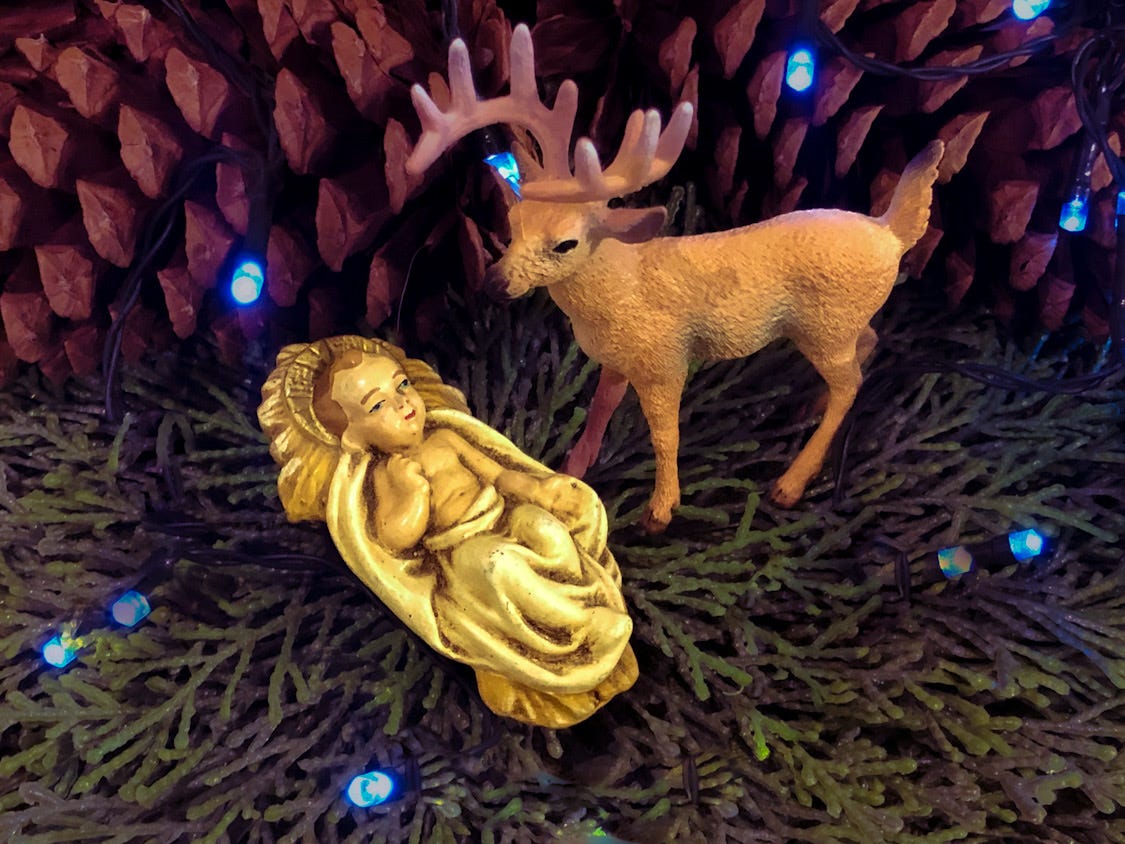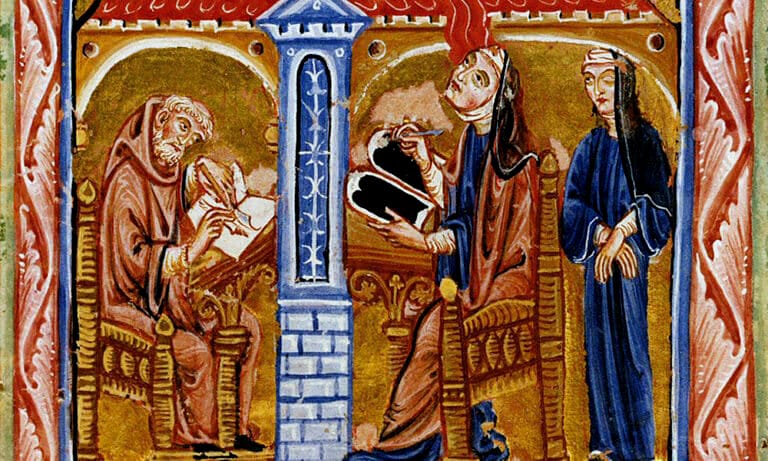Epiphany
a sudden flash of knowing
Today, January 6th, is Epiphany, meaning you can officially take down your Christmas tree and your nativity.
It's the last day of the twelve days of Christmas, and the season now comes to a close.
In some countries, notably Mexico, it's Three Kings Day. The day the three wise men finally located the Child they were seeking. Which was likely many months to a year or two after the birth in Bethlehem.
The Eastern Orthodox Church focuses on the baptism of Christ rather than the arrival of the Magi.
Both of those events symbolize a sudden, supernatural flash of spiritual insight.
For the Magi, it was the realization that this Child predicted by the stars was much more than just the earthly king of the Jews. For those watching from the banks of the Jordan River some thirty years later, it was the realization that John the Baptist's cousin was the chosen one in whom God was well pleased.
Epiphany is an exciting concept because it indicates that ordinary people can receive unique spiritual insight at anytime.
In the case of the official and sanctioned "Epiphany," the spiritual knowledge mentioned above is given the stamp of doctrinal approval.
But what about all those other epiphanies people have?
What about the often unsettling moments of "unverified personal gnosis" that occur in our spiritual lives?
If you've ever strayed from the strictly orthodox, embraced spirituality over religion, or taken a deep dive into mysticism from any tradition, you've likely bumped into this concept. In addition, you may have had your own moments of "unverified personal gnosis."
Gnosis means knowledge of spiritual mysteries, personal in this context means something you experienced individually, and unverified means no one else can corroborate your experience.
Sometimes these experiences fit neatly into our mainstream religious beliefs, and sometimes they don't. Sometimes they have to do just with us, and sometimes with the grander scope.
The question is, what do you do with these sudden flashes of spiritual insight? How do you know if they are authentic, just wishful thinking or a kind of deception?
Can you trust your experiences?
We're masters at self-deception, and there are spiritual entities that don't have your best interest at heart (yes, they do exist). The goal is an ever-increasing mastery of evaluating our experiences. Eventually, we get to the place of understanding and trusting how we receive spiritual information.
Wisdom councils us to compare what we receive to known trusted sources. The great mystics always used accepted religious language to describe their experiences. Many did this to avoid being labeled heretical and burned at the stake. Most of us don't have to worry about that. However, using conventional religious language to describe what we have experienced or received can help in self-verification. It can help us clarify what has transpired and how it fits into our belief system.
Second, it's essential to recognize that personal gnosis is for you. It's meant to help you on your spiritual journey, and it likely won't apply to others. This is where taking responsibility for your spiritual growth and development comes in. So what is this download of information teaching you? What do you need to know, consider, re-evaluate, release or embrace? What is affirmed, and what is challenged?
Also, personal gnosis is apt to change as your spiritual journey deepens. This is normal and necessary and why all spiritual experiences need to be held lightly. They are precious, profound, and sometimes have far-reaching effects, but ultimately, they are only stepping stones on your journey.
Sometimes personal gnosis creates a tension of opposites when what you've received or experienced seems at odds with what would be considered trustworthy or established belief. What then?
Explore. Untangle the knots, find the commonalities and differences, and ask hard questions. In the end, you may have to stretch your comfort zone and be prepared to hold two opposing ideas for a while. But, over time, they may reconcile as you have new insights and your beliefs evolve. Then again, they won't, and you will have to live with the enigma accepting it as a mystery you could not solve.
Epiphany's most important message is the revelation and acceptance of sudden flashes of spiritual insight as a regular part of our experience.
To embrace Epiphany is to become open to wonder-filled and mind-expanding experiences that help us as we journey through life. Epiphany teaches us that the Divine, as well as beings from the spiritual realms speak directly to us.
Have you had any epiphanies? What did you learn, and how did they help you?
I'd love to hear from you, so please feel free to share in the comments.





Thank you for your insight Jan. On the first night of Advent, I engaged in a candle lighting ceremony with an inspirational song and a prayer/poem of their choice to be read by each attendee. My friend and sister did theirs and after I recited a prayer I wrote to the Divine some years ago, a coyote howled near my beloved blue spruce tree. A gathering place for wildlife. The insight from that moment for me was the reassurance I am not alone on my journey. I look forward to your next piece.